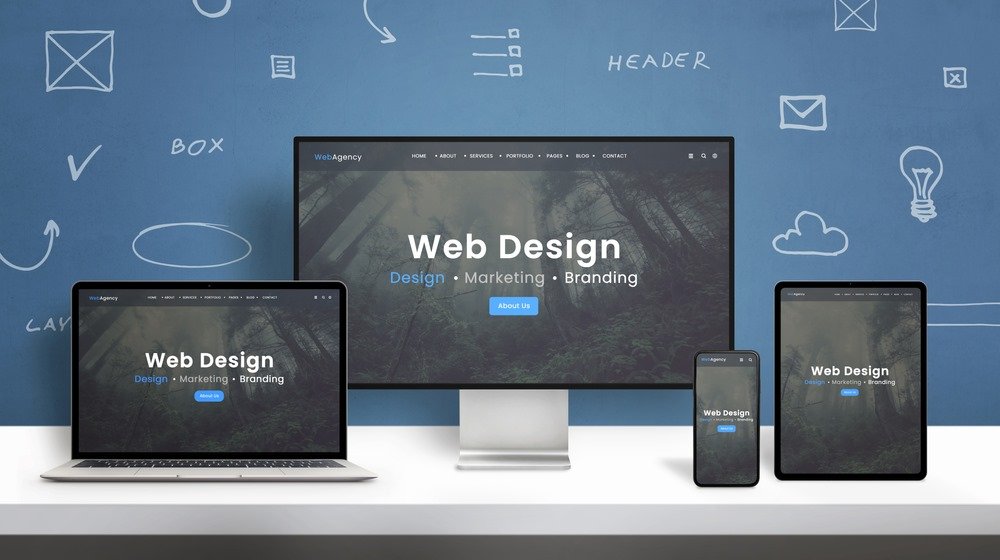Designing a hotel website is not just about showing rooms or listing prices. It is about creating a smooth and welcoming experience even before the guest enters the hotel. A smart hotel website builds trust, increases bookings, and offers useful information that visitors are looking for. If done correctly, your hotel website can turn casual visitors into paying guests.
Whether you manage a luxury resort, a small guesthouse, or a chain of boutique hotels, your website should reflect the comfort and experience you offer. Let’s explore how you can design a hotel website that not only looks beautiful but also performs like a professional sales tool.
Why a Hotel Website Matters
A hotel website is like your reception desk on the internet. Guests want to explore your property, check room availability, read reviews, and make bookings—all in one place. Most travelers today don’t want to call or email. They want quick answers and smooth bookings directly from the website.
That’s why it is important to make your site fast, easy to use, mobile-friendly, and trustworthy.
Key Features Every Hotel Website Should Have
1. High-Quality Photos and Videos
Good pictures create the first impression. Real, high-resolution images of rooms, lobby, restaurant, pool, and other areas give guests a visual feel of your hotel. Also include walkthrough videos and guest experience clips.
2. Fast and Clear Booking Engine
Include a simple booking engine that lets users check room availability, add promo codes, select dates, and book instantly. Make sure it works smoothly on mobile phones and desktops.
3. Real Guest Reviews
Display honest guest reviews on your site. You can also pull reviews from platforms like Google, Booking.com, or TripAdvisor. Highlight stories from families, couples, and business travelers.
4. Updated Packages and Deals
Offer weekend discounts, honeymoon packages, spa deals, or business event plans. Keep them updated so repeat visitors find new deals.
5. Clear Contact and Support Options
Your contact number, email, and WhatsApp button should be visible on every page. Also include a form for general inquiries and a live chat option.
Extra Features That Guests Appreciate
1. Itinerary and Local Tips
Guests often plan short holidays. Add sample travel plans, local places to visit, best dining spots nearby, and cultural activities. This makes your hotel more helpful.
2. Interactive Maps and Location Info
Add Google Maps, parking info, travel directions, and distance from airports or popular places. Help guests plan their route easily.
3. Loyalty and Reward Programs
Encourage repeat bookings by offering discounts or rewards. Add a loyalty program where frequent guests earn points or enjoy benefits like late check-out.
4. Social Media Links and Galleries
Include your Instagram feed, Facebook reviews, and YouTube video tours directly on your website. It shows real-time activity and builds trust.
5. Event or Wedding Section
If you host weddings or events, create a special section with venue pictures, decoration options, and event packages.
6. Multilingual Options
If you welcome international guests, offer your website in multiple languages such as English, Arabic, French, or German.
Smart Design and User Experience (UX)
1. Simple Navigation
Your website menu should include tabs like Home, Rooms, Facilities, Dining, Gallery, Contact, and Book Now. Avoid too many dropdowns.
2. Clear Call-to-Actions (CTAs)
Use buttons like “Book Now,” “Check Availability,” or “Reserve a Table.” Use attractive colors and keep them visible on all pages.
3. Mobile-Friendly Layout
Make sure the site works perfectly on mobile phones and tablets. More than half of your visitors will come from mobile devices.
4. Accessibility Features
Add text resizing, screen reader support, keyboard navigation, and alt text on all images. It helps users with disabilities and improves your site’s reach.
5. Personalized Guest Journey
Offer users the ability to create accounts where they can save their preferences or check past bookings.
Technical Essentials You Should Not Ignore
1. Fast Loading Speed
Guests won’t wait for slow websites. Use compressed images, caching, reliable web hosting, and a CDN for faster speed.
2. Secure Payment Integration
Use HTTPS and secure payment gateways. Add trust badges to assure guests that their data is safe.
3. SEO and Blog Section
Optimize your site with local keywords like “beach hotel in Dubai.” Write blogs about nearby attractions or hotel stories to improve your Google ranking.
4. Data Privacy and GDPR
If you collect user data, include a privacy policy and follow all data protection laws. Let users know how their data will be used.
5. OTA Integration (Booking.com, Airbnb, etc.)
Use tools that sync your website with travel platforms. This avoids double-booking and keeps your availability updated everywhere.
6. AI Chatbot for Quick Help
Add a smart chatbot that answers booking questions, room details, or nearby attractions even during late hours.
7. Abandoned Booking Recovery
If a user starts booking but leaves the site, send them an email reminder or use a popup to help them complete the process.
Visual Storytelling
1. Tell Your Story
Use the About Us page to talk about your hotel’s history, values, and the kind of experience you offer. This builds emotional connection.
2. Showcase Your Team
Share pictures and small introductions of your staff. Show the chef, spa expert, or manager. Real faces build real trust.
3. Behind-the-Scenes Content
Post pictures or short videos about how breakfast is prepared, rooms are cleaned, or guests are welcomed. This shows care and transparency.
Safety and Hygiene Section
After the global pandemic, safety is more important than ever. Add a section on cleaning procedures, contactless check-in, availability of hand sanitizers, and emergency protocols. Guests feel more confident when they know you care.
What to Avoid on a Hotel Website
- Avoid auto-playing music or videos.
- Don’t use fake stock photos.
- Never leave outdated offers visible.
- Do not overload pages with popups.
- Don’t ignore mobile optimization.
Final Advice: Hire a Skilled Web Design Team
Creating a hotel website that brings results needs professional design, marketing skills, and technical knowledge. A skilled designer knows how to combine visuals, user experience, mobile friendliness, SEO, and smooth booking features.
Agencies like RedSpider Web & Art Design understand the hotel industry and can build a site that helps you grow your bookings.
Conclusion
Your hotel website is more than a digital brochure. It is the heart of your online presence. From visuals and reviews to bookings and safety info, everything should work together to win the guest’s trust. Focus on fast loading, mobile usage, emotional content, and easy navigation.
Add modern features like loyalty rewards, itinerary suggestions, and multilingual support. Provide a strong booking engine and real support options. Don’t forget the technical side like speed, security, and SEO.
Invest time and effort into your hotel website, and you will see the results—more bookings, better reviews, and happy returning guests.












